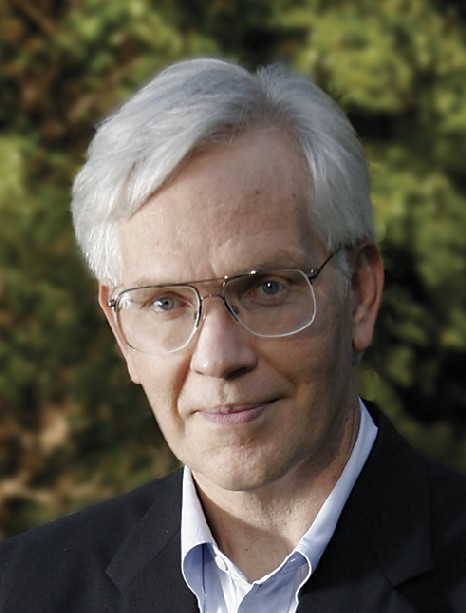Key words :
future energies,
peak oil
,oil reserves
,michael lynch
,oil supplies
,world petroleum assessment
Oil Optimists Grow More Outlandish
24 Sep, 2009 06:07 pm
As the troubling realities of future oil supplies begin to penetrate official circles, the oil optimists are making even more outlandish claims.
 |
| © Moleskine |
Lynch admits that with current technology only 2.5 trillion barrels of what remains can be produced though he believes future advances in technology will greatly increase the recoverable amount. He adds that he is not even including production from tar sands or other nonconventional sources. He writes all this as if it were a matter of settled fact and without citing a single piece of evidence for his views.
Lynch's most recent boast is part of a series of ever-escalating estimates by oil optimists starting a decade ago. Today, such estimates carry with them a tone of desperation as the evidence mounts that we are approaching a worldwide peak in the production of oil. The timing of peak oil production is important because there is currently no viable substitute for oil. A nearby peak would raise havoc with a global economy addicted to ever-increasing supplies of cheap oil to fuel its growth. If oil supplies begin to decline soon, that growth may be difficult and perhaps impossible to achieve.
Lynch's estimate finds its provenance in the U. S. Geological Survey's (USGS) World Petroleum Assessment (WPA) which places the world's total endowment of conventional oil at about 3 trillion barrels. The WPA was published in 2000 and has served as a launching point for the optimists ever since. They forget, however, that the report included three scenarios: a low case, a mean or reference case, and a high case. The low case puts the world's total endowment of conventional oil at about 2.2 trillion barrels which means that we have produced about half of what the world has. This estimate is more in line with the pessimists' view. The high case--to which the agency assigns a 5 percent probability--puts the total endowment at 3.9 trillion barrels. This high case is often cited by the optimists without any qualifier that it is a low-probability outcome, at least in the view of the USGS. The high case is close to Lynch's current recoverable estimate of 3.5 trillion barrels though he clearly sees that number growing dramatically over time.
Cambridge Energy Research Associates (CERA), a longtime cheerleader in the optimists' camp, places the world's endowment of recoverable conventional oil at precisely 3.74 trillion barrels which is in line with the WPA's 5-percent probability high case. CERA says that if unconventional oil resources--such as tar sands, oil shale and arctic oil--are added to this number, the total reaches precisely 4.82 trillion barrels. The firm notes that even this number is "likely to grow."
Exxon CEO Rex Tillerson, however, has a bigger number in mind. He contended in a 2005 speech that the amount of undiscovered oil could be 7 trillion barrels. That would bring the total endowment to about 8 trillion barrels assuming approximately 1 trillion has already been consumed. He didn't cite his source.
Not to be outdone, the minister of petroleum and mineral resources for the Kingdom of Saudi Arabia, Ali al-Naimi, told a 2006 gathering at the Center for Strategic and International Studies that "there are at least 14 trillion barrels of reserves in the world, seven (trillion) of which are conventional and probably seven (trillion) so-called non-conventional." Again, no source was cited.
Two issues that the optimists don't like to talk about are flow rates and energy return on investment or EROI. No doubt some of the unconventional sources will be exploited. In fact, some already are being exploited. The big questions are twofold: 1) At what rate can the world expect to get unconventional sources out of the ground and 2) how much energy will have to be expended to get them? By definition unconventional sources of oil are more difficult to get. If the rate of flow turns out to be a small trickle compared to what the world economy requires on a daily basis, it will matter very little how big the resource is supposed to be. If it ends up taking more energy to extract the bulk of these unconventional resources than they yield, then these supposed energy resources will not be energy sources at all, but rather energy sinks; they will be subtracting energy from society. In that case, it simply won't make any sense to exploit them beyond the point at which this occurs.
When confronted with these issues, the optimists' ready answer is that technology will overcome these hurdles--technology that hasn't been invented yet, of course.
The optimists whose views were once bolstered by pronouncements from official circles are finding themselves increasingly at odds with those same circles. The International Energy Agency, a consortium of 28 mostly oil-importing nations, has now done an about-face. Rather than accepting figures given by oil producing nations worldwide as it has in the past, the agency did its own field-by-field survey for the first time ever. What it found convinced the agency's analysts that world oil production is likely to peak by 2020. That's much earlier than the 2037 date predicted by the U. S. Energy Information Administration (EIA) in its reference case. And, it is many decades earlier than the optimists cited above are predicting.
Even the ever-optimistic EIA has been lowering its long-term oil production outlook though not yet embracing an earlier peak in oil production. Forecasted oil production dropped from 120 million barrels a day in 2025 in its 2004 International Energy Outlook to 113 million barrels a day in 2030 in the 2008 version of the outlook. It declined again to 107 million barrels in 2030 in this year's outlook. The agency cites lower than expected demand resulting from higher than expected prices as the main driver behind the falling forecasts--not constraints on supplies. But this represents substantial movement from an agency that had previously merely extrapolated production to meet its projected demand and rarely questioned whether supply might pose a problem.
As the oil crisis deepens in the coming decade, we can be sure that the oil optimists will give us even more outlandishly optimistic estimates of our future oil reserves. These new estimates will in all likelihood rest not on proven discoveries, but on vague yet-to-be discovered resources that will become accessible at some point in the future because of unspecified technological advances. (The question for policymakers is whether it is wise to base policy on such assumptions.)
When pressed on the issue of technology, the optimists point to a myriad of technologies which are helping us find new oil and extract it from difficult places. These technologies include directional drilling, horizontal wells, deepwater drilling platforms, 3D seismic surveys (which reveal in colorful detail what's under the ground and under the seabed), and enhanced oil recovery techniques. The trouble is that none of these technologies are new. In fact, they are all essentially mature, and their widespread application has failed to bring us out of a nearly four-decade-long decline in discoveries.
In the world of the oil optimists, however, we can expect that imaginary new technologies will continue make everything possible. Meanwhile, back in the real world, the hard facts of geology are beginning to bear down on us.
Key words :
future energies,
peak oil
,oil reserves
,michael lynch
,oil supplies
,world petroleum assessment
-
12/12/12
Peak Oil is Nonsense Because Theres Enough Gas to Last 250 Years.
-
05/09/12
Threat of Population Surge to "10 Billion" Espoused in London Theatre.
-
05/09/12
Current Commentary: Energy from Nuclear Fusion Realities, Prospects and Fantasies?
-
04/05/12
The Oil Industry's Deceitful Promise of American Energy Independence
-
14/02/12
Shaky Foundations for Offshore Wind Farms







 Read more
Read more
The most optimistic figure I am aware of is that we may have 2.4 trillion barrels worth of conventional oil, based on a P50 analysis. I am extremely doubtful there is so much "oil" left in an extractable form, and there is the question of what is meant by "oil".
Much of what does remain is likely to be of the very heavy, sour (high sulphur) kind which is very difficult to extract in the first place, hard to process, certainly into petrol type fuels and of course the sulphur has to be removed, all adding to the complexity and expense of the process.
However much "oil" there is, the age of "cheap" plentiful liquid fuels is coming to an end, and along with it the global economy.